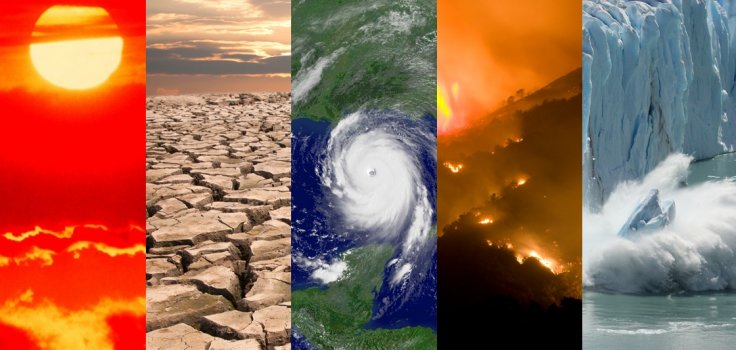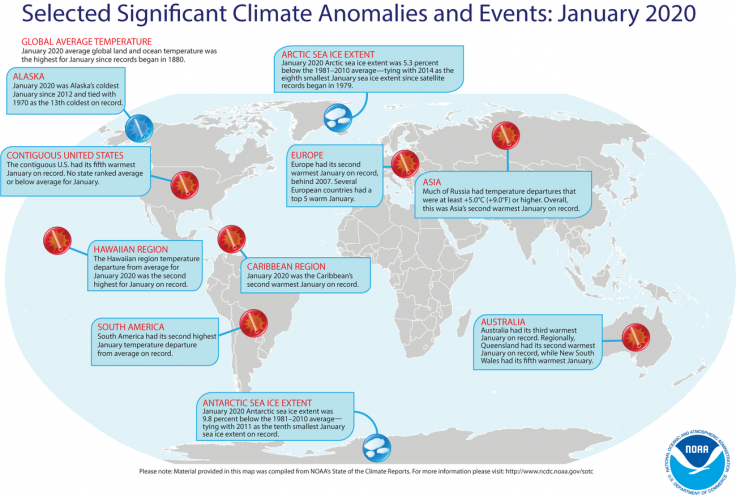Ringing alarm bells over the drastically changing climatic conditions, the Earth recorded its hottest January ever, with temperatures going 2.05 degrees Fahrenheit, much above the 20th-century average.
Ever since the modern record-keeping began in 1880, for the first time in 141 years of recorded history, January saw a rise of record 1.13 degree or 2.05 degrees Fahrenheit in the land and oceans temperatures as compared to 0.04 of a degree Fahrenheit recorded in January 2016. The report was provided by the National Oceanic and Atmospheric Administration (NOAA).
2020 will be one of the hottest five years on Earth: Scientists

Owing to the rising land and ocean temperature across the globe, the scientists at the National Centers for Environmental Information, believe that 2020 will be one of the five warmest years recorded so far. "January 2020 marked the 44th consecutive January and the 421st consecutive month with temperatures, at least nominally, above the 20th-century average," the NOAA mentioned on its report.
JUST IN: January 2020 surpassed 2016 as the warmest #January on record for globe, according to @NOAANCEIclimate https://t.co/Y88Yf1yBud #StateOfClimate pic.twitter.com/2rkFPVi85r
— NOAA (@NOAA) February 13, 2020
Until now, 2016 was the hottest year with the global-average temperature being 1.78 degrees Fahrenheit or 0.99 degrees Celsius. 2019 stood a close second. The areas which recorded the hottest temperatures were located in parts of Scandinavia, Asia, the Indian Ocean, the central and western Pacific Ocean, the Atlantic Ocean, and Central and South America. While these areas had record-warm temperatures, no land or ocean areas showed record-cold January temperatures.
Earth's hemispheres undergo dramatic temperature changes
Providing a detailed account of the changing temperatures, NOAA said: "The Northern Hemisphere also had its warmest January on record, at 2.70 degrees F (1.50 degrees C) above average. The Southern Hemisphere had a departure of 1.40 degrees F (0.78 of a degree C) above average — its second-warmest January on record after January 2016."

Furthermore, this January, the Northern Hemisphere also saw a snow coverage which was below the 1981–2010 average, thereby having the 18th-smallest January snow cover in the 54-year record.
"The record continues a rising trend in temperatures as carbon dioxide emissions trap heat in the atmosphere and warm the planet. The four hottest Januaries on record have all occurred since 2016, and the 10 hottest Januaries have all occurred since 2002," NOAA said.









